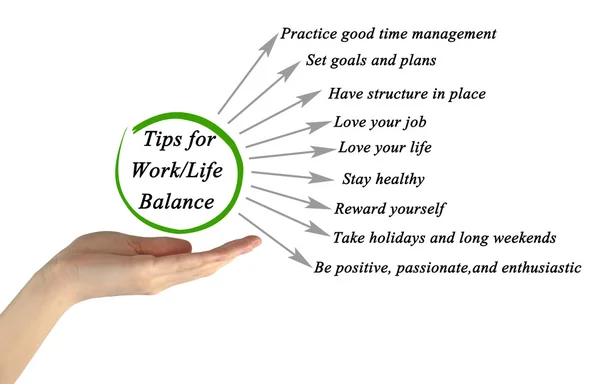Introduction
Maintaining optimal health is a dynamic journey that encompasses various facets of well-being. In this comprehensive guide, we will explore practical and evidence-based health tips to guide individuals towards a balanced lifestyle. From nutrition and exercise to mental well-being and sleep hygiene, each aspect plays a crucial role in achieving overall health and vitality.
-
Nutrition Essentials: Fueling the Body Right
- Proper nutrition is the cornerstone of good health. This section delves into the importance of a balanced diet that includes a variety of fruits, vegetables, lean proteins, whole grains, and healthy fats. Exploring portion control, mindful eating, and the significance of hydration sets the foundation for sustainable and nourishing dietary habits.
-
Embracing Physical Activity: The Power of Regular Exercise
- Regular exercise is a key contributor to physical and mental well-being. This segment discusses the benefits of different forms of exercise, including aerobic activities, strength training, and flexibility exercises. Understanding the importance of consistency and finding activities that align with personal preferences ensures the incorporation of exercise into daily life.

-
Mind-Body Connection: Nurturing Mental Well-Being
- Mental health is integral to overall wellness. This section emphasizes the significance of stress management, mindfulness practices, and seeking social support. Exploring activities like meditation, yoga, and hobbies contributes to a positive mind-body connection, fostering resilience and emotional balance.
-
Quality Sleep: The Restorative Power of a Good Night’s Rest
- Adequate and quality sleep is essential for physical and mental restoration. This part of the guide discusses the importance of sleep hygiene, establishing a consistent sleep schedule, and creating a conducive sleep environment. Understanding the link between sleep and overall health highlights the transformative power of a good night’s rest.
-
Hydration Habits: Quenching the Body’s Thirst for Health
- Staying adequately hydrated is often overlooked but is crucial for various bodily functions. This section provides insights into the daily water intake requirements, the benefits of hydration, and practical tips for maintaining proper fluid balance. Understanding the signs of dehydration and incorporating hydrating habits into daily life are key takeaways.

-
Screen Time Management: Balancing the Digital Lifestyle
- In the digital age, managing screen time is vital for both physical and mental well-being. This segment explores the potential health impacts of excessive screen time and offers strategies for finding a balance. Implementing digital detox practices and setting boundaries contribute to a healthier relationship with technology.
-
Preventive Health Measures: Proactive Steps for Long-Term Wellness
- Proactive health measures, including regular check-ups, screenings, and vaccinations, are essential for preventing and detecting potential health issues early on. This section emphasizes the importance of staying informed about one’s health status and collaborating with healthcare professionals to create personalized preventive care plans.
Conclusion
In conclusion, optimizing well-being requires a holistic approach that considers nutrition, exercise, mental health, sleep, hydration, screen time, and preventive measures. By incorporating these evidence-based health tips into daily life, individuals can embark on a journey towards a balanced and vibrant lifestyle. This comprehensive guide serves as a roadmap for those seeking practical insights and actionable steps to prioritize and enhance their overall health and well-being.
FAQs
-
Why is proper nutrition considered the cornerstone of good health, and what elements constitute a balanced diet?
- Answer: Proper nutrition is essential for overall health, providing the body with essential nutrients. A balanced diet includes a variety of fruits, vegetables, lean proteins, whole grains, and healthy fats. This section explores the significance of balanced nutrition, delving into portion control, mindful eating, and the importance of hydration.
-
How does regular exercise contribute to both physical and mental well-being, and what are the key components of a well-rounded exercise routine?
- Answer: Regular exercise is a key contributor to physical and mental well-being, offering numerous health benefits. This segment discusses different forms of exercise, including aerobic activities, strength training, and flexibility exercises. Understanding the importance of consistency and aligning activities with personal preferences is explored.
-
Why is the mind-body connection crucial for nurturing mental well-being, and what activities promote resilience and emotional balance?
- Answer: The mind-body connection plays a vital role in overall wellness. This section emphasizes stress management, mindfulness practices, and seeking social support for mental well-being. Exploring activities like meditation, yoga, and hobbies contributes to a positive mind-body connection.
-
What role does quality sleep play in physical and mental restoration, and what are the practical tips for establishing good sleep hygiene?
- Answer: Adequate and quality sleep is essential for physical and mental restoration. This part of the guide discusses the importance of sleep hygiene, establishing a consistent sleep schedule, and creating a conducive sleep environment. The link between sleep and overall health is highlighted, emphasizing the transformative power of a good night’s rest.
-
Why is staying adequately hydrated crucial for overall health, and what are the recommended daily water intake requirements?
- Answer: Staying adequately hydrated is often overlooked but is crucial for various bodily functions. This section provides insights into daily water intake requirements, the benefits of hydration, and practical tips for maintaining proper fluid balance. Understanding signs of dehydration and incorporating hydrating habits into daily life are key takeaways.
